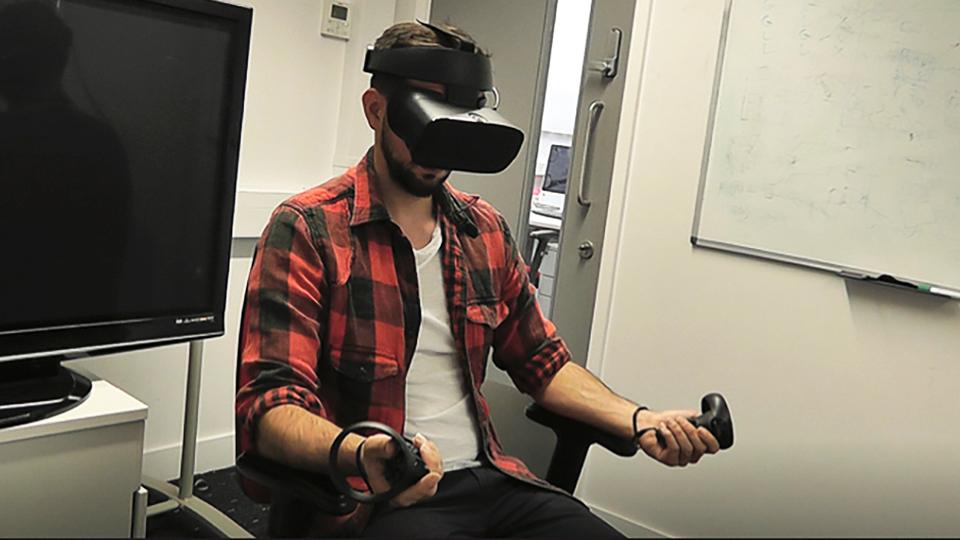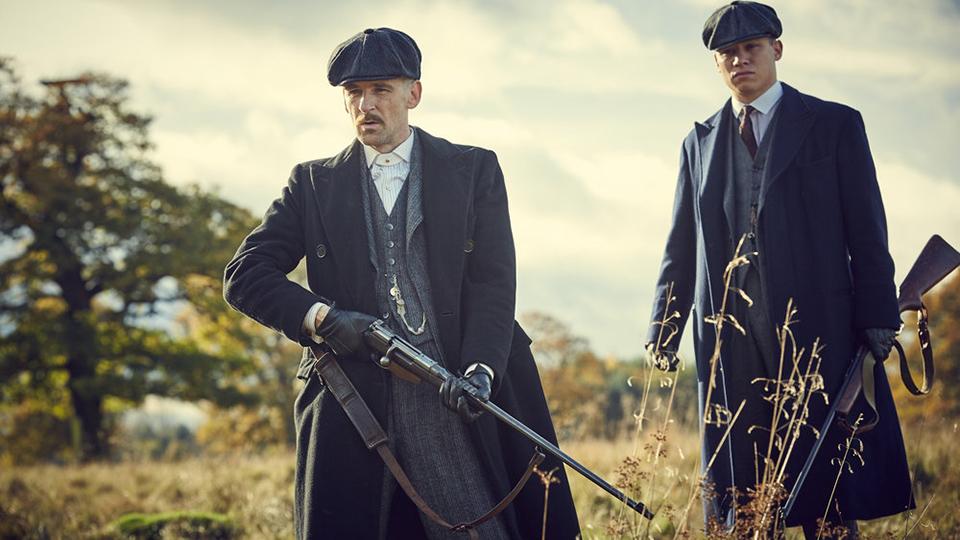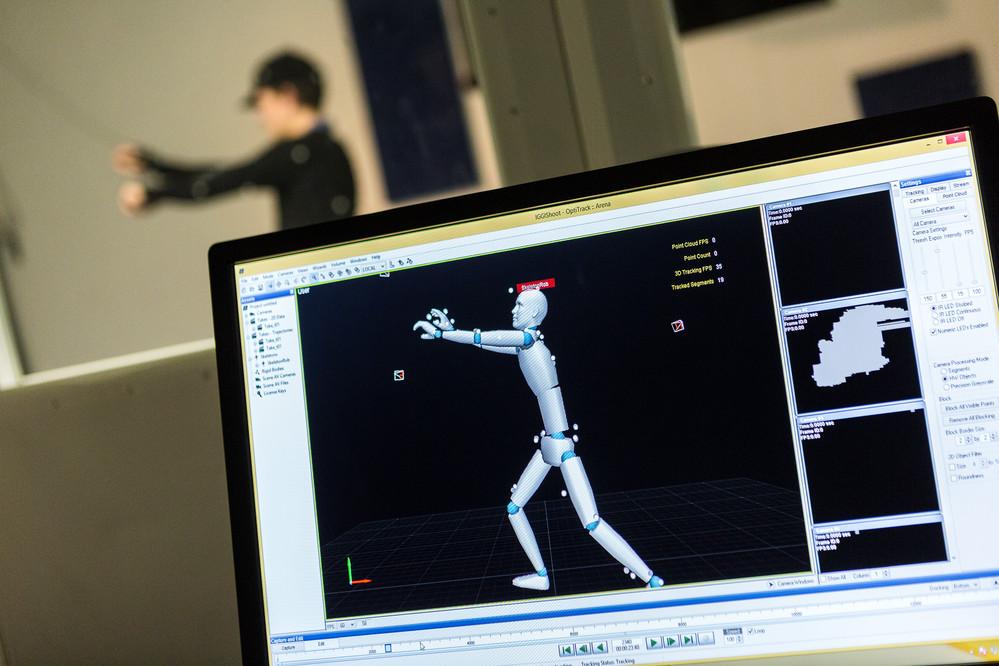Professor Marco Gillies
Staff details
Links
Goldsmiths Research Centres/Groups
Professor of Computing. Co-director SEEVR lab and MA/MSc V&AR
Marco is co-director (with Xueni 'Sylvia' Pan) of both the Masters in Virtual and Augmented Reality and the Social, Empathic and Embodied Virtual Reality Lab. He has been researching Virtual Reality and Artificial Intelligence since the late 1990s and has particularly worked on virtual humans and movement based interaction with VR.
In the past he has also been Academic Director: Distance Learning and Academic Director of Goldsmiths' Teaching and Learning Innovation Centre. He co-founded the BSc Creative Computing degree at Goldsmiths, which was a key part of establishing Goldsmiths Computing as a key centre for applying computing to the arts and creative sectors. He co-created the first MOOC from an English University and was instrumental in developing Goldsmiths' large scale online degrees: BSc Computer Science and MSc Data Science.
Academic qualifications
- PhD in Computer Science, University of Cambridge 2001
- BA in Computer Science, University of Cambridge 1997
Teaching and supervision
Marco Co-directs and teaches on the Masters in Virtual and Augmented Reality.
He supervises Masters and PhD projects in many areas relating to Virtual Reality and Immersive media, particularly the interface of VR and AI/Machine Learning, Movement-based and Embodied forms of interaction and social interaction in VR and AR.
Research interests
Marco's research covers a wide range of areas of virtual reality and immersive media, particularly in three major areas:
- The application of AI and Machine Learning to VR
- The use of full body movement for interaction with immersive media
- Social interaction in VR, AR and MR
These three strands are tightly intertwined. Machine learning is a key technology for recognising and designing movement based interaction; body movement and body language are a vital part of what makes VR a powerful medium for social interaction, and social interaction can be with AI characters as well as real people.
Marco is also interested in human-centred approaches to AI and machine learning that use HCI methods and epistemologies to enable machine learning as a creative tool.
His work is highly interdisciplinary and includes applications and collaboration with fields such as dance and performance, medicine, education, games development, critical disability studies, developmental psychology and social neuroscience.
Research projects
2022:
The plasticity of the bodily self: how function and age shape the acceptance of virtual bodies.
A ESRC funded collaboration with Dorothy Cowie at the University of Durham that investigates how adults and children can adapt to virtual bodies with different appearances and functions
Immersive, Innovative, and Interactive Experience (IIIE): A Technology Driven London-Shanghai Partnership in Mixed Realities and Performing Arts
Led by Xueni 'Sylvia' Pan, this AHRC funded project aims to foster collaboration between the creative sectors in the UK and China around immersive media and performance
2019-2021:
4i: Immersive Interaction Design of Indie Developers using Interactive Machine Learning
An EPSRC funded collaboration with University of Coventry CDARE, UAL CCI and Gibson/Martelli, looking at using machine learning to enable dancers and artists to design movement interaction for VR
2018-2019:
AI-Driven Characters for Immersive Narrative Games
An InnovateUK funded collaboration with game studios Maze Theory and Dream Reality Interactive that applied machine learning to social interaction with immersive game characters for Peaky Blinders
2017-2020:
Understanding and generating real-time face-to-face social interactions
A Leverhulme funded project led by Antonia Hamilton of the UCL Institute of Cognitive Neuroscience using motion capture and machine learning to understand non-verbal social interaction.



